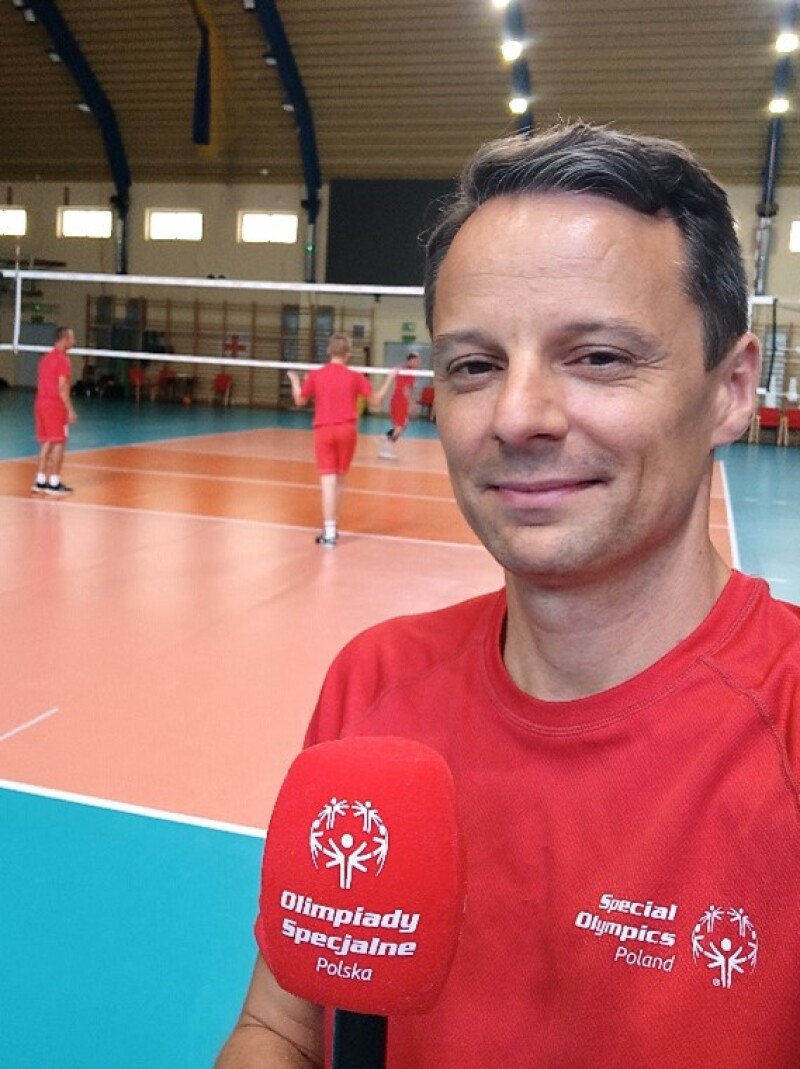Photo by Anna Spindelndreier
Special Olympics is once again joining the International Council for Coaching Excellence (ICCE) on their Global Coaches Day 2025 to say thank you to all the coaches around the world who make Special Olympics sport programming possible!
Coaches are an integral part of Special Olympics. Through sport, Special Olympics athletes, coaches, and Unified partners are able to grow, better themselves and foster inclusion while breaking down barriers and dispelling stereotypes about people with intellectual disabilities.
Fifty-seven years after Eunice Kennedy Shriver, the founder and very first Special Olympics coach, started Special Olympics in her backyard, the movement now has more than 233,000 certified coaches in 72 sports offered across 6 continents and in 7 Special Olympics Regions. It is remarkable to see hundreds of thousands of passionate coaches use their time, energy, and resources to help athletes train and compete, achieve their goals, and grow both on and off the field of play. Special Olympics coaches don’t just develop athletes, they change lives, creating impactful change in the world today, leaving a legacy for generations to come.
Special Olympics coaches commit themselves to ongoing education including online webinars and courses, in-person workshops, and other instructional sessions. They recognize that in order for their athletes to be the best they can be they themselves must be committed to furthering their education and knowledge of their respective sport. By doing so, Special Olympics coaches can be better leaders, and their athletes have the abilities and opportunities to break down boundaries and defy expectations. This dedication equips them to coach Special Olympics athletes around the world in their respective sports(s) at any level.
Learn more by becoming a Special Olympics coach.
Next month, 16 teams, 8 men’s/mixed and 8 women’s, will descend upon Spodek Arena in Katowice, Poland for the first-ever Special Olympics Unified Volleyball World Cup. Coaching these 16 teams are 32 coaches who share decades of collective knowledge with experience ranging from the grassroots level all the way to professional.
Let’s get to know three of the coaches who will be coaching teams in Katowice next month.
Radek Łypczak, Special Olympics Poland’s Men/Mixed Volleyball Head Coach

What have you learned about yourself as a coach working with Special Olympics?
Humility, passion, and satisfaction. I think it would be hard to work as a coach in Special Olympics without passion. You have to feel a certain kind of connection with people with intellectual disabilities. For over 20 years, I have worked as a therapist with such individuals, but sport gives me the most satisfaction. The other side of the coin is humility, which I try to bring to every challenge.
Naranchimeg Altangerel (Nara), Special Olympics Mongolia Women’s Volleyball Head Coach

How important is it for you to continue to learn as a coach?
As a coach, it is extremely important for me to continue learning. Sports science, training methods, and even athletes’ needs are always evolving. By constantly improving my knowledge and skills, I can provide the best possible support for my athletes, keep them motivated, and help them reach their full potential. Lifelong learning allows me not only to stay up to date with new techniques but also to grow personally and professionally.
Kristofina Bartromeus, Special Olympics Namibia Women’s Volleyball Head Coach

Can you give an example of how you were able to help an athlete improve their performance beyond any medals they may have won in the Special Olympics?
I help my athletes by setting small, yet realistic goals like managing their pace and/or working on their strength. Additionally, I work on building their confidence by encouraging them to work harder, focusing on drills that demand teamwork, giving positive reinforcement, and giving them small leadership roles during practice.
